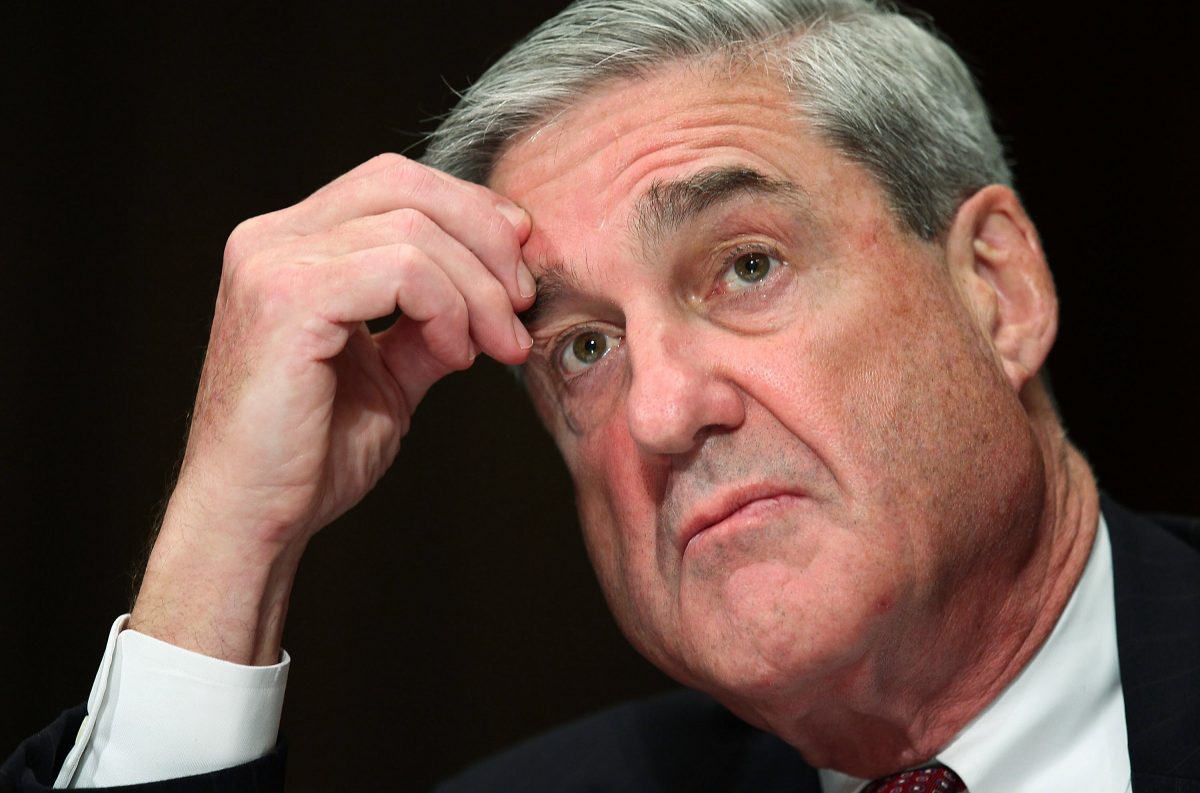
Special counsel Robert Mueller and his deputy Rush Atkinson filed a 14-page motion Tuesday arguing that the government shouldn’t have to release certain evidence to indicted Russian company Concord Management and Consulting LLC due to ongoing “interference operations” against the United States.
In the motion, Mueller’s team requested a protective order to: (1) keep other co-defendants named in the February 16 indictment from accessing the government’s evidence against them; and (2) to keep additional evidence under the control of government attorneys and away from Concord Management itself.
By the terms outlined in the government’s requested order, “[d]isclosure of sensitive discovery would initially be limited to domestic defense counsel.” Mueller’s motion continues:
After review of the materials, defense counsel could seek permission from the Court to make additional disclosures. For any foreign national to whom defense counsel wishes to disclose sensitive materials, defense counsel would provide a firewall counsel for the government (separate from the prosecution team) with the name of any such individual contemporaneous to its request for Court approval. If needed, firewall counsel would alert the Court to any concerns or considerations about such disclosures.
Lots of legalese there.
In English, Mueller’s team is suggesting that Concord Management not have access to the evidence being used against them–at least not at first. The special counsel contends that only Concord Management’s attorneys be given access to said evidence and that maybe, at some point in the future, with the court’s permission, two additional legal teams–one provided by the defense; one provided by the government and putatively unaffiliated with the prosecution–might huddle together and come to an agreement that Concord Management actually be afforded an opportunity to view the evidence in question.
In my opinion, Mueller’s posture could easily viewed as a red-tape-heavy method intended to cripple and undermine Concord Management’s defense. In the United States, criminal defendants are entitled–by virtue of an almost sacred right–to view the evidence used against them. This right undergirds the basic foundation of America’s adversarial legal system.
Supreme Court jurisprudence has frequently favored the rights of the accused to know what they’re up against, too. And yes, this even goes for foreign nationals because the U.S. Constitution applies to anyone under the jurisdiction of the United States. Not just citizens and not just people on the landmass.
The proposed protective order expressly forecloses against that right. At the same time, the Mueller’s proposal purports to offer Concord Management the mere possibility of seeing those discovery materials sometime down the road. This would maybe occur by way of extremely complicated and burdensome permission-seeking regime under circumstances which could accurately be described as theoretical at best. Mueller’s team, of course, makes pains to appear the reasonable actor.
The aforementioned allegations of “interference operations” comprise most of Mueller’s argument for why this wide-ranging protective order should be granted. The motion notes:
Public or unauthorized disclosure of this case’s discovery would result in the release of information that would assist foreign intelligence services, particularly those of the Russian Federation, and other foreign actors in future operations against the United States. First, the substance of the government’s evidence identifies uncharged individuals and entities that the government believes are continuing to engage in interference operations like those charged in the present indictment.
This argument is almost clever.
Mueller’s team is tilting against the windmills of “[p]ublic or unauthorized disclose” of the evidence involved in the case–in excess of two terabytes by the government’s own estimation. But Concord Management’s attorneys aren’t requesting public or unauthorized disclosure. Rather, they’re simply using the Federal Code of Criminal Procedure to request documents and evidence which should be provided to their clients as matter of federal law, Constitutional right and legal custom. The problem appears to be that the Russians’ attorneys are simply using U.S. law too effectively.
Additionally, the accusations are conclusory and unsupported. It’s one thing for Mueller’s team to state “the government believes [uncharged individuals] are continuing to engage in interference operations.” It’s another thing entirely to offer any sort of evidence to support such an accusation. Mueller has provided no evidence here.
The second aspect of Mueller’s argument is even weaker. Again, the motion:
Second, information within this case’s discovery identifies sources, methods, and techniques used to identify the foreign actors behind these interference operations, and disclosure of such information will allow foreign actors to learn of these techniques and adjust their conduct, thus undermining ongoing and future national security investigations.
This is a rehashed refrain from government attorneys and law enforcement when they try to prevent information from being released. The basic verbiage is more or less cribbed from the Freedom of Information Act’s Exemption (7)(E), part of the general law enforcement exemption. Instead of using the exemption’s language–again, roughly–to protect bad cops from the prying eyes of journalists and citizens, however, Mueller’s team has offered another conclusory and self-serving statement in order to keep a criminal defendant from accessing information necessary to mount an adequate defense.
No matter one’s position on the named Russian defendants in the private sector troll farm case, these heavy-handed information-hiding tactics against internet trolls accused of frustrating the democratic process is an ironic use of the U.S. legal system.
Mueller Motion vs. Concord Consulting and Management, LLC by LawNewz on Scribd
[image via Alex Wong/Getty Images]
Follow Colin Kalmbacher on Twitter: @colinkalmbacher
This is an opinion piece. The views expressed in this article are those of just the author.